
Aleksandr Rogozhkin
출생 : 1949-10-03, Leningrad, USSR
사망 : 2021-10-23
약력
Aleksandr Vladimirovich Rogozhkin (Russian: Алекса́ндр Влади́мирович Рого́жкин; 3 October 1949 – 23 October 2021; Leningrad) was a Russian film director and writer.
In 1990, Rogozhkin directed Karaul, which won the Alfred Bauer Prize at the 40th Berlin International Film Festival. Rogozhkin's film The Chekist was screened in the Un Certain Regard section at the 1992 Cannes Film Festival. Abroad, he is famous for his acclaimed 2002 film The Cuckoo (Kukushka), which won the Golden Eagle Award for Best Picture, Best Screenplay, Best Directing, and Best Feature Film. The film was also entered into the 24th Moscow International Film Festival where he won the award for Best Director. This film also received the Annual Best Film Award and Best Screenplay Award, both in 2002 in Moscow from the Guild of Historians of Cinema and Film Critics. It also won Best Feature Film and Best Directing for the Nika Awards in 2002, and it won Best Screenplay at the Honfleur Russian Film Festival in 2003 in Honfleur, France. Rogozhkin was also one of the first filmmakers addressing the Chechen War with his 1998 Blokpost war drama. Rogozhkin's most renowned television work are episodes of the Streets of Broken Lights – Russia's most popular police procedural TV series. He also directed the spin-off series Deadly Force. He also directed a series of popular Russian-language screwball comedies Peculiarities of National...: Peculiarities of National Hunt (1995), Peculiarities of National Fishing (1998), Peculiarities of the National Hunt in Winter Season (2000), and Peculiarities of National Politics (2003). These were made in a similar vein together with Operation Happy New Year, containing much humor about alcohol-related adventures and stunts. It won the Nika Award for Best Film, Best Director, and Best Actor. It was nominated for the Nika award for Best Screenplay, and it was nominated for the Crystal Globe Award. Rogozhkin's film Transit (Peregon) was released in 2006. It is a "wartime tragicomedy" about the relationship between Soviet soldiers in the Far Eastern outpost in Chukotka and the American female pilots who bring them U.S.-made airplanes from Alaska through the lend-lease program. As in The Cuckoo, Rogozhkin cast a number of amateur actors for Peregon.

Director

Writer
"O. R.U.ZH.I. E "is the abbreviation of the names of friends: O - Oleg, a military pensioner, R - Roman, a scientist, an employee of a research institute, U - Ulyana, a television correspondent, Zh - Zhenya, a physicist, doctor of sciences, I - Igor, entrepreneur, former reporter, husband of Ulyana, E - Egor, laboratory assistant at the provincial research center. Oleg and Roman experience the latest weapons - a rifle with exceptional range and destructive power. The tests are successful, and Oleg is trying to interest the military with these weapons.

Director
"O. R.U.ZH.I. E "is the abbreviation of the names of friends: O - Oleg, a military pensioner, R - Roman, a scientist, an employee of a research institute, U - Ulyana, a television correspondent, Zh - Zhenya, a physicist, doctor of sciences, I - Igor, entrepreneur, former reporter, husband of Ulyana, E - Egor, laboratory assistant at the provincial research center. Oleg and Roman experience the latest weapons - a rifle with exceptional range and destructive power. The tests are successful, and Oleg is trying to interest the military with these weapons.
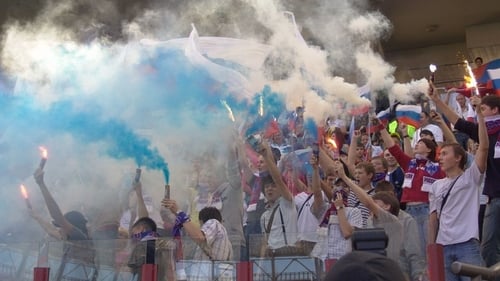
Writer
A funny comedy about the Russian footfall team and their adventures during the World Cup.

Director
A funny comedy about the Russian footfall team and their adventures during the World Cup.
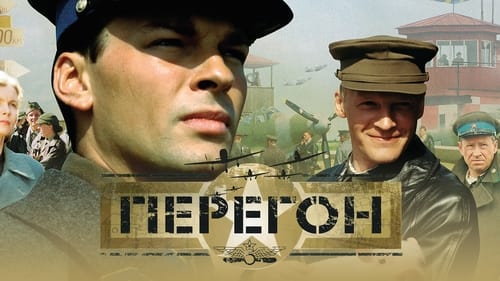
Screenplay
A group of American pilots from Alaska ferry Airacobra fighter planes across the ocean on Lend-lease. The orderly course of life is disrupted when it becomes clear that the American pilots are attractive and charming young women. The feelings of the Russian young men collide into barriers of culture and language resulting in a host of awkward, funny, and sometimes tragic situations.It is the story of Russians, Americans, and natives of the Far North. It is the story of man and woman in war. Love and death are squeezed between the hills as human fates are destroyed and born.

Director
A group of American pilots from Alaska ferry Airacobra fighter planes across the ocean on Lend-lease. The orderly course of life is disrupted when it becomes clear that the American pilots are attractive and charming young women. The feelings of the Russian young men collide into barriers of culture and language resulting in a host of awkward, funny, and sometimes tragic situations.It is the story of Russians, Americans, and natives of the Far North. It is the story of man and woman in war. Love and death are squeezed between the hills as human fates are destroyed and born.

Director Andrey Kalistratov is making a multi-part television film about the literary life of Petrograd after the Civil War, about the House of Arts, which was created by the Bolsheviks to control the creative intelligentsia. Modern Petersburg and Petrograd of 1921 are intricately intertwined in the director's mind. The cruel, bloody, but romantic world of the first years of the revolution and the artistic and everyday environment of modern cinema coexist in one space. The main characters of the film that Kalistratov is shooting - the poet and former officer Pyotr Versilov, his girlfriend Olga, the French documentary cameraman Etienne Faberge and his wife Francoise - are as real to the director as the people around him-the film's producer Semyon Mikhailovich, the film crew, actors, friends, acquaintances, relatives. Despite the demands of the producer to be "simpler" and "more economical", Kalistratov wants to make a real historical film, not a standard TV series "soap".

Screenplay
Director Andrey Kalistratov is making a multi-part television film about the literary life of Petrograd after the Civil War, about the House of Arts, which was created by the Bolsheviks to control the creative intelligentsia. Modern Petersburg and Petrograd of 1921 are intricately intertwined in the director's mind. The cruel, bloody, but romantic world of the first years of the revolution and the artistic and everyday environment of modern cinema coexist in one space. The main characters of the film that Kalistratov is shooting - the poet and former officer Pyotr Versilov, his girlfriend Olga, the French documentary cameraman Etienne Faberge and his wife Francoise - are as real to the director as the people around him-the film's producer Semyon Mikhailovich, the film crew, actors, friends, acquaintances, relatives. Despite the demands of the producer to be "simpler" and "more economical", Kalistratov wants to make a real historical film, not a standard TV series "soap".

Director
Director Andrey Kalistratov is making a multi-part television film about the literary life of Petrograd after the Civil War, about the House of Arts, which was created by the Bolsheviks to control the creative intelligentsia. Modern Petersburg and Petrograd of 1921 are intricately intertwined in the director's mind. The cruel, bloody, but romantic world of the first years of the revolution and the artistic and everyday environment of modern cinema coexist in one space. The main characters of the film that Kalistratov is shooting - the poet and former officer Pyotr Versilov, his girlfriend Olga, the French documentary cameraman Etienne Faberge and his wife Francoise - are as real to the director as the people around him-the film's producer Semyon Mikhailovich, the film crew, actors, friends, acquaintances, relatives. Despite the demands of the producer to be "simpler" and "more economical", Kalistratov wants to make a real historical film, not a standard TV series "soap".

Writer

Director

Writer
General Ivolgin, forester Kuzmich, and good-natured Lyova now are going into politics.

Writer
September of 1944, a few days before Finland went out of the Second World War. A chained to a rock Finnish sniper-kamikadze Veikko managed to set himself free. Ivan, a captain of the Soviet Army, arrested by the Front Secret Police 'Smersh', has a narrow escape. They are soldiers of the two enemy armies. A Lapp woman Anni gives a shelter to both of them at her farm. For Anni they are not enemies, but just men.

Director
September of 1944, a few days before Finland went out of the Second World War. A chained to a rock Finnish sniper-kamikadze Veikko managed to set himself free. Ivan, a captain of the Soviet Army, arrested by the Front Secret Police 'Smersh', has a narrow escape. They are soldiers of the two enemy armies. A Lapp woman Anni gives a shelter to both of them at her farm. For Anni they are not enemies, but just men.

Writer
Now the peculiarities of the national hunt are investigated during the winter season.

Director
Now the peculiarities of the national hunt are investigated during the winter season.

Writer
Sisin, a forty-year-old writer, gets on the train and goes out of town. In the car, he is surrounded by strange passengers, some of whom resemble famous Russian writers: Chekhov, Tolstoy, Dostoevsky, Kuprin... Surreal visions, hidden desires, fears, and anxieties arise in Sisin's imagination. Love, career, and life itself seem stupid and meaningless to him.

Director
Sisin, a forty-year-old writer, gets on the train and goes out of town. In the car, he is surrounded by strange passengers, some of whom resemble famous Russian writers: Chekhov, Tolstoy, Dostoevsky, Kuprin... Surreal visions, hidden desires, fears, and anxieties arise in Sisin's imagination. Love, career, and life itself seem stupid and meaningless to him.
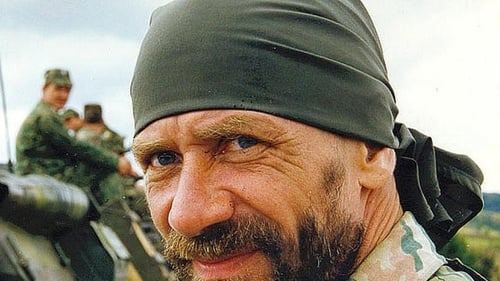
Writer
A group Russian soldiers is send to an outpost to guard the area. They pass the day patroulling the area, while being shot at from the forest. They never know if the civillions are hostile or friendly to them.

Director
A group Russian soldiers is send to an outpost to guard the area. They pass the day patroulling the area, while being shot at from the forest. They never know if the civillions are hostile or friendly to them.

Writer
General Ivolgin, forester Kuzmich, and good-natured Lyova lose their way on a fishing trip and wind up in a neighboring country, where they decide to have a good time anyway but end up leaving their vodka and fishing equipment behind.

Director
General Ivolgin, forester Kuzmich, and good-natured Lyova lose their way on a fishing trip and wind up in a neighboring country, where they decide to have a good time anyway but end up leaving their vodka and fishing equipment behind.

Editor
A comedy about a New Year Eve celebration in one very funny hospital.

Writer
A comedy about a New Year Eve celebration in one very funny hospital.

Director
A comedy about a New Year Eve celebration in one very funny hospital.

Director

Screenplay
A Finn preparing a work on the Russian hunting traditions and customs, comes to Russia to collect materials and is invited to take part in a hunting party. His flamboyant companions include an Army general, with more than a passing resemblance to Aleksander Lebed, a police detective, local forest ranger (a devotee of Zen Buddhism) and some big-city types from St. Petersburg. Inevitably, their good intentions soon give way to endless drinking, visits to local farm girls and much else besides.

Director
A Finn preparing a work on the Russian hunting traditions and customs, comes to Russia to collect materials and is invited to take part in a hunting party. His flamboyant companions include an Army general, with more than a passing resemblance to Aleksander Lebed, a police detective, local forest ranger (a devotee of Zen Buddhism) and some big-city types from St. Petersburg. Inevitably, their good intentions soon give way to endless drinking, visits to local farm girls and much else besides.

Writer
The main character is an intellectual from Russia, who sees it as his duty to bring an idiot from an mental institution to his house. He can pick someone out, after bribing the boss of the institution, with two bottles of vodka. He chooses Vova, at first sight a silly man, and takes him home. His wife is at first not very happy with this choice. Vova says and does nothing at all. Then he becomes an aggressive man, who terrorises the house and bashes everything to pieces. After she is raped by Vova, the wife gets sexually dependant on the Idiot. Vova isn't interested anymore, when she gets pregnant and doesn't keep the baby. The idiot goes now to the intellectual for his sexual needs. The wife can't take this anymore and forces her man to take a choice: Vova out, or she will go.

Director
The main character is an intellectual from Russia, who sees it as his duty to bring an idiot from an mental institution to his house. He can pick someone out, after bribing the boss of the institution, with two bottles of vodka. He chooses Vova, at first sight a silly man, and takes him home. His wife is at first not very happy with this choice. Vova says and does nothing at all. Then he becomes an aggressive man, who terrorises the house and bashes everything to pieces. After she is raped by Vova, the wife gets sexually dependant on the Idiot. Vova isn't interested anymore, when she gets pregnant and doesn't keep the baby. The idiot goes now to the intellectual for his sexual needs. The wife can't take this anymore and forces her man to take a choice: Vova out, or she will go.

Director
Srubov is a part of CHEKA, the secret police Lenin established after the Bolshevik Revolution. They arrest, interview for a minute, try in ten seconds, and execute intellectuals, aristocrats, Jews, clergy, and their families. In the building basement, five people at a time are shot as they stand naked facing wooden doors. No one to remember their last words; no martyrs, just anonymous bodies. Daily, the kangaroo court, the executions, the loading of bodies onto wagons. Srubov is cold, distant, sexually dysfunctional, and a deep thinker, hated by former friends and his family. As he tries to reason the nature of revolution and the purpose of CHEKA, he slowly goes mad.
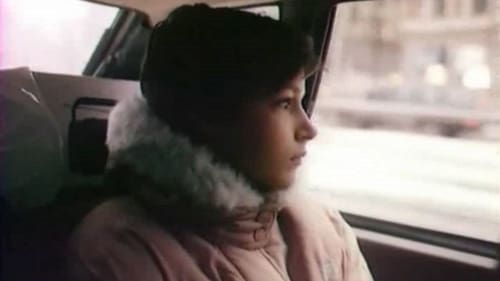
Writer
Drawing heavily from Arkady and Boris Strugatsky's 1971 novella 'Piknik na obochine' ('Roadside Picnic') as well as Andrei Tarkovsky's 1979 film adaptation ('Stalker'), 'Tretya planeta' tells the story of a father seeking a cure for his ill daughter by venturing into an area known only as "The Zone" to request help from the mysterious healers that dwell within its forbidden borders.

Director
Drawing heavily from Arkady and Boris Strugatsky's 1971 novella 'Piknik na obochine' ('Roadside Picnic') as well as Andrei Tarkovsky's 1979 film adaptation ('Stalker'), 'Tretya planeta' tells the story of a father seeking a cure for his ill daughter by venturing into an area known only as "The Zone" to request help from the mysterious healers that dwell within its forbidden borders.
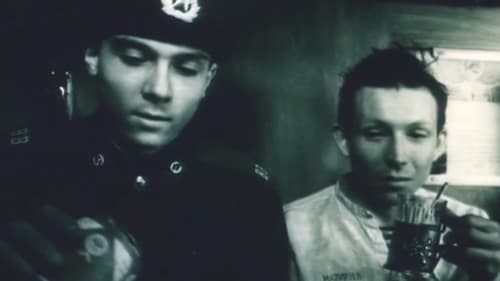
Director
Young soldiers of the Soviet Internal Troops are brutally bullied during their time of Dedovshchina(hazing). The plot unfolds mostly on board of a prisoner transport rail car guarded by a unit of paramilitary conscripts.

Director
At the beginning of "perestroyka", city authorities are getting ready for another event in keeping with the spirit of stagnant times. A director with a rather "unyielding" character is assigned to make a film about the birth of the one millionth inhabitant. However, when he finds the heroine of his story, there is no much "positive" to show as this family hardly suits for advertising happy life...

Director

Director














